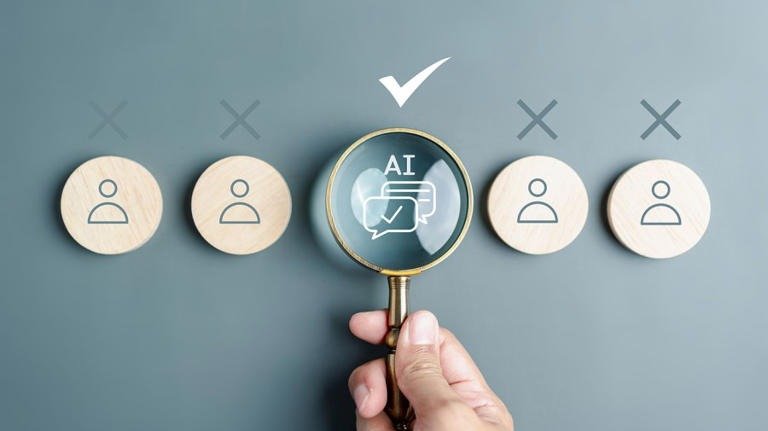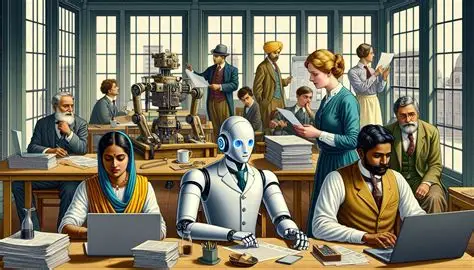AI and the Future of Work: Productivity Boost, Job Risks, and Skills You Need
Published on: August 25, 2025 | By: blog-ai

AI and the Future of Work: How jobs are changing
The discussion around AI and the Future of Work often raises fears of job loss. In reality, Artificial Intelligence mostly replaces repetitive tasks like data entry, sorting, and standard replies. This doesn’t necessarily mean fewer jobs overall. Instead, it allows humans to focus on creativity, empathy, and decision-making. According to OECD, automation transforms roles rather than eliminating them. New careers are emerging in AI supervision, algorithm ethics, and lifelong learning.
AI and the Future of Work: Productivity and fair distribution
The clearest impact of AI and the Future of Work is on productivity. Machines process tasks in seconds, software handles massive data flows, and errors decrease dramatically. Teams can now deliver more value in less time.
However, these productivity gains are not automatically shared. Reports by McKinsey show that the value created by AI can fund training and new opportunities, but only if businesses and governments commit to fairness. Without this, productivity may benefit only a minority.
AI and the Future of Work: Key skills for tomorrow
- Collaboration with AI-powered tools
- Critical thinking to evaluate AI outputs
- Creativity and human innovation
These skills are increasingly valuable. The good news: they can be developed through short training, mentoring, and practice. Habits such as mindfulness, meditation, and good sleep also enhance focus and resilience, ensuring you thrive in the AI era. 👉 See also our related article on AI tools for business.
Examples of AI and the Future of Work in daily life
- Healthcare: AI supports medical imaging and early detection, giving doctors more time for patient care.
- Retail: Chatbots handle routine queries, freeing sales teams to provide personalized advice.
- Public administration: Automated forms reduce delays and improve citizen services.
In each case, AI handles repetitive work, while humans remain in charge of empathy, decision-making, and trust. This balance defines AI and the Future of Work.
How to adapt to AI and the Future of Work
- Identify the most time-consuming tasks in your work and test automation tools.
- Plan short, practical training sessions to upgrade your skills.
- Support clear ethical rules and transparency in AI use.
These steps empower both freelancers and employees to transform AI and the Future of Work into an opportunity instead of a threat. Taking action today prevents fear tomorrow.
FAQ about AI and the Future of Work
Will AI replace my job?
Unlikely in full. AI automates tasks, not entire jobs. Human empathy, creativity, and judgment remain irreplaceable.
Do I need to learn coding to stay employable?
No. Understanding how to use AI tools and developing transferable skills in communication, analysis, and project management is enough.
Can lifestyle habits improve my performance with AI?
Yes. Meditation, sleep, and work-life balance strengthen focus and resilience in the AI-driven workplace.





Thank you so much for providing individuals with an extraordinarily pleasant opportunity to discover important secrets from this site. It can be so pleasing and jam-packed with a great time for me personally and my office friends to visit your web site at minimum three times in a week to see the newest tips you will have. Not to mention, we are certainly motivated with your fabulous tricks you serve. Selected 1 facts in this article are ultimately the most efficient we have all ever had.